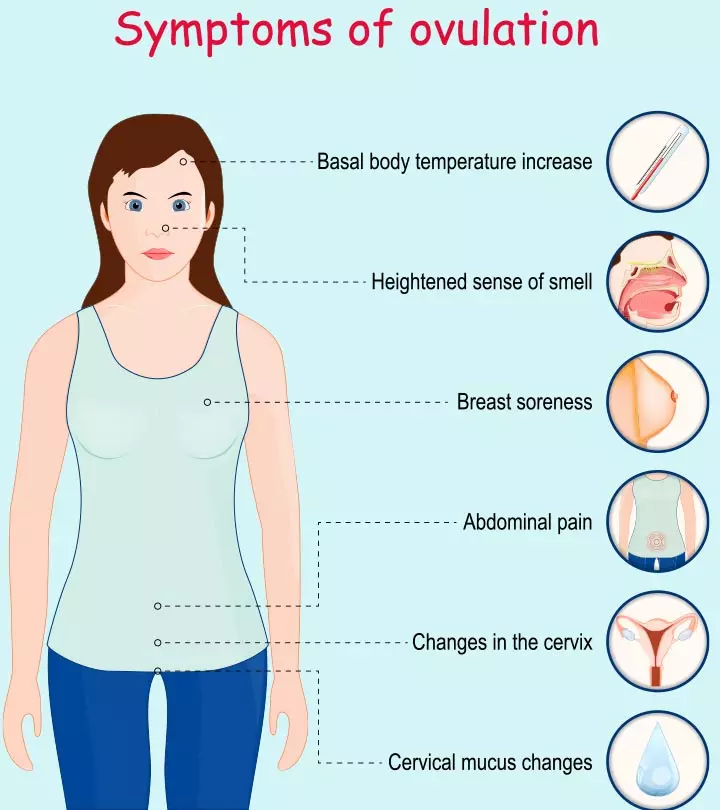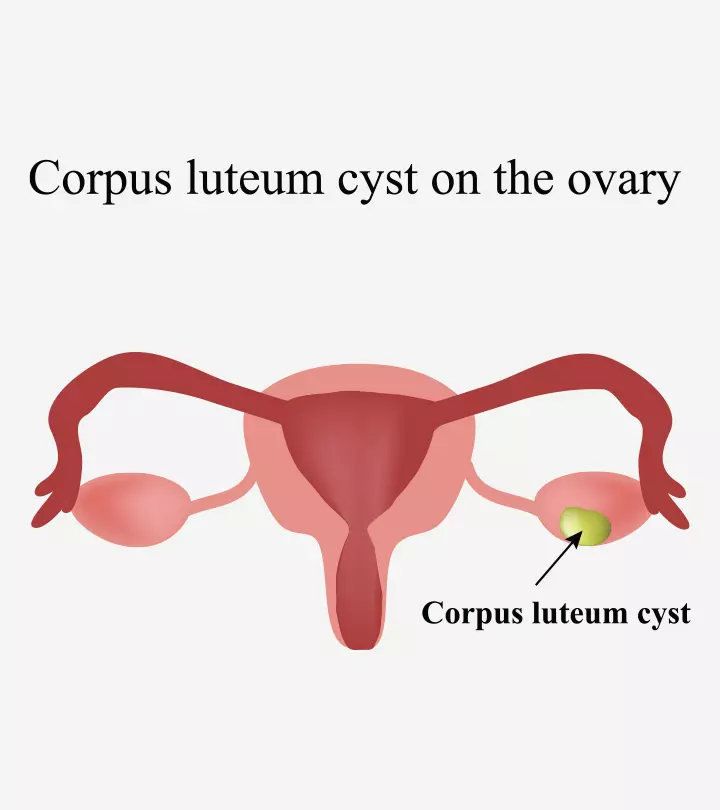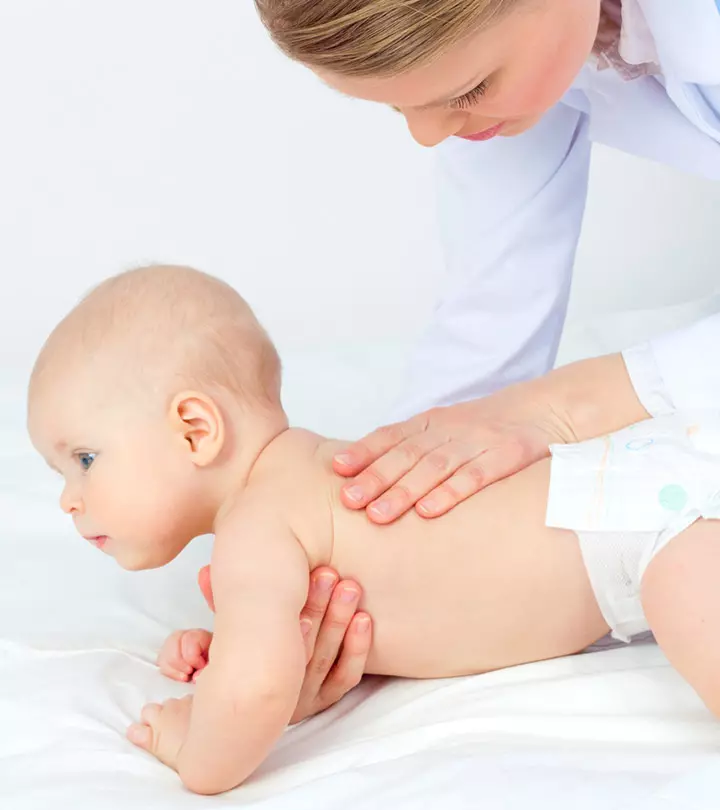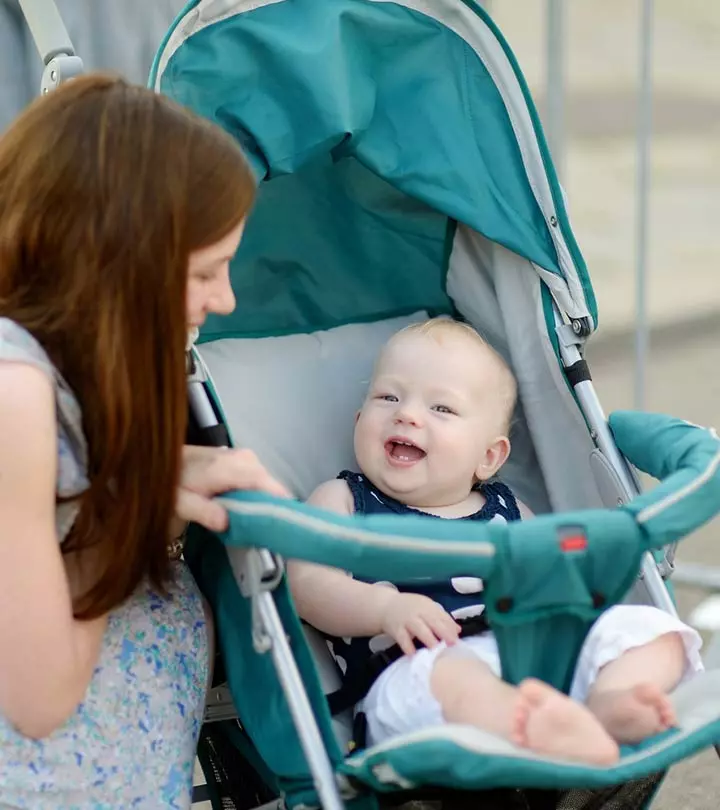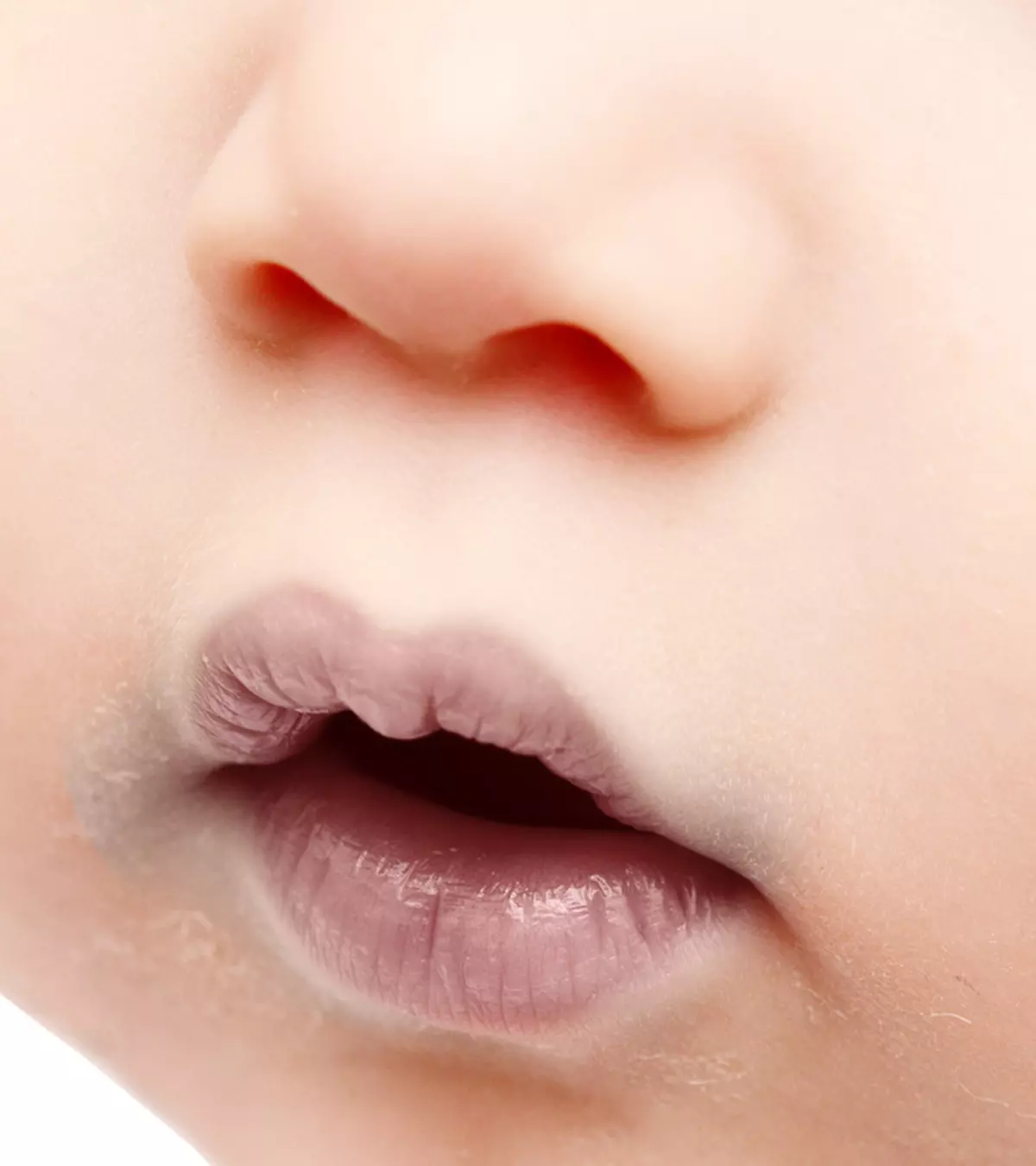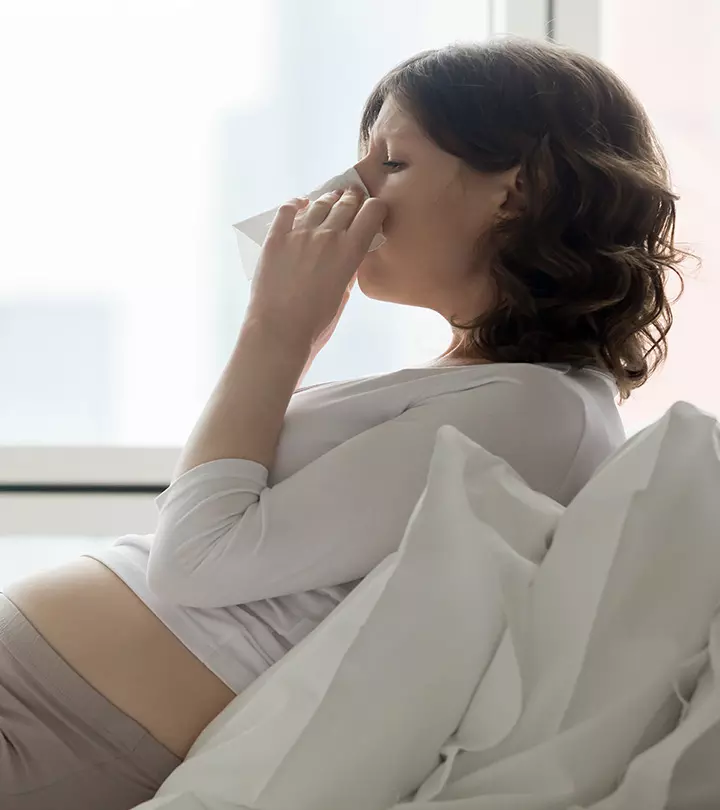
Image: Shutterstock

Sneezing during pregnancy is common, just like it is at other times. Usually, sneezing doesn’t cause any harm to you or your baby. However, recurrent or continuous sneezing may cause some women to leak urine. In such cases, you can consult a doctor to determine the underlying cause of recurrent sneezing. In most cases, simple home remedies can effectively alleviate sneezing and related discomfort.
Read on as we share the causes of sneezing during pregnancy, its effects on you and the baby, and effective tips to help you deal with sneezing.
Key Pointers
- Sneezing during pregnancy is typically harmless, but frequent episodes may cause urinary incontinence.
- Low immunity and rhinitis are common triggers of sneezing in pregnant women.
- Sneezing during pregnancy may result in sharp pain in the lower belly due to the round ligament’s tightening.
- Home remedies like humidifiers, steam inhalation, and saline nasal spray can alleviate sneezing and its associated discomfort.
- Consult a physician if experiencing breathing difficulties, chest pain, green or yellow mucus, fever over 100°F, or trouble eating or sleeping during pregnancy.
What Causes Sneezing In Pregnancy?
Here are a few reasons why you could sneeze during pregnancy:
1. Low immunity: Pregnancy weakens your immunity and makes the body sensitive to allergies such as:
- Indoor allergies caused due to dust or pet dander (microscopic skin-shed of animals with fur and feather).
- Seasonal allergies caused due to pollen and hay. It is a common cause for asthma and pregnancy aggravates the condition if you already have one. As the immunity is compromised, it makes way for a virus to invade your body, leading to common cold and flu. This would lead to common flu-like symptoms, including a runny nose or stuffy nose, sore throat and congestion.
As the immunity is compromised, it makes way for the viruses to invade your body, leading to common cold and flu.
2. Pregnancy rhinitis: It is nasal congestion caused without respiratory tract infection or an allergic cause. The condition, usually, disappears two weeks after delivery. A study has found that the rate of nasal congestion is 27% during the 12th week and 42% in the 36th week, indicating that nasal congestion increases in the third trimester (1).
 Quick fact
Quick factHow Do You Feel While Sneezing?
Sneezing can give you a lot of relief from a blocked nose and nasal irritation but during pregnancy, it could be painful too. Sneezing can lead to the tightening of the round ligament, which supports the uterus. The tightening can result in sharp, radiating pain in the lower belly. However, it is not harmful in any way. The round ligament looks like a band of connective tissues. It connects the groin to the front of the uterus thereby supporting the uterus (2).
 Quick tip
Quick tipDoes Sneezing Affect The Pregnant Mother And Her Baby?
Sneezing, as mentioned earlier, is due to an inflammation of the nasal passage or throat that doesn’t pose any risk to the baby or the expectant mother. However, asthma or the congestion of nasal passage can cause breathing difficulty in the mother, and compromise oxygen supply to the fetus. If you are feeling breathless due to sneezing for a long time, consult your doctor.
Urine Leakage Due To Sneezing During Pregnancy
Urinary incontinence or urine leakage while sneezing is common during pregnancy. The hormonal changes and the pressure exerted by the uterus on the bladder cause the urethraiThe channel through which urine exits the body through to relax involuntarily, which results in urine leakage while sneezing.
How To Deal With Sneezing?
Though harmless, sneezing is discomforting. If you’re sneezing while pregnant, there are some remedies you can try at home to find relief. Here are a few tips to follow:
- Use a humidifier in the night to clear the nasal congestion.
- Steam inhalation or saline nasal spray also helps clear the congestion.
- Use a neti-potiA nasal irrigation device that uses saline or saltwater to treat sinus congestion, colds, and allergies with water or saline solution to get relief from the inflammation of the throat and the nasal passage.
- If you are allergic to dust or mold, then use an air purifier.
- Drink ginger juice with a spoon of honey added to it as ginger has medicinal properties to relieve cold.
- Eating cooked or raw garlic helps prevent infections.
- Add black pepper to salads and soups to get relief from throat inflammation.
- Hold your lower belly while sneezing. It can help avoid the pain and stretching in the round ligaments, especially during sneezing fits.
- If urine leakage is frequent, wear a panty liner to prevent wetting.
- Eat healthy foods, including fruits rich in vitamin C, and take up mild exercises to boost your immunity.
Medical treatment is not required for sneezes but if they are unbearable and you want to get some quick relief, then you might try the below:
Medical treatments:
It is best to avoid all medications in the first 12 weeks of pregnancy. That’s a critical time for the development of your baby’s vital organs. Choose single medications for the symptoms you’re dealing with. You should also avoid using medications while pregnant unless recommended by your doctor.
- Chlorpheniramine (Triaminic Allergy) and diphenhydramine (Benadryl) can be used for sneezing.
- AntihistaminesiMedications that help relieve symptoms caused by allergies like loratadine work well for allergies (3).
- You may also get a flu shot during pregnancy (4).
A survey by the Centers for Disease Control and Prevention revealed that influenza vaccination reduces pregnant women’s risk of influenza-related hospitalizations by an average of 40%. This compelling evidence confirms that prenatal vaccination enhances the safety of pregnancy.
Though these medications are safe, we’d suggest you talk to your doctor before taking any medicines during pregnancy.
When Should You Consult A Doctor?
Sneezing is not associated with any complications during pregnancy. However, if you notice any of the following symptoms, then consult your doctor:
- Breathing difficulty
- Difficulty in eating and sleeping
- Chest pain or other respiratory discomforts
- Green or yellow-colored cough mucus
- Fever of 100 degrees or more
Pregnancy weakens your immune system, making sneezing and cold both commonplace. While they are definitely irritating, they are not harmful and go away in a few days. While you wait for the problem to subside, you may use some home remedies to get the relief .
Frequently Asked Questions
1. Is there a link between hormonal changes and sneezing during pregnancy?
Hormonal changes may potentially cause gestational rhinitis, a condition marked by sneezing and other nasal symptoms in pregnancy. The pregnancy hormones such as placental trophoblastic hormone, progesterone, and estrogen are believed to play a role in this condition. However, the precise understanding of how these hormonal changes contribute to gestational rhinitis remains incomplete. Therefore, more research is required to investigate this condition’s underlying physiological processes and mechanisms (6).
2. How can a pregnant woman tell the difference between sneezing caused by allergies and sneezing caused by a cold or flu virus?
Although sneezing is common in allergic reactions and cold or flu infections, certain distinguishing factors exist. For example, allergies often also result in itchy eyes and a runny nose, while viral infections may bring additional symptoms of body aches, sore throat, and fever. Furthermore, allergies are triggered by specific allergens, whereas cold or flu viruses spread through contact with infected individuals or objects (7)(8).
Infographic: Managing Sneezing When Going Out During Pregnancy
Those constant sneezes could make things difficult for going outdoors during pregnancy, whether you have a doctor’s appointment or wish to step out for dinner. So take a look at this infographic and download it on your phone for some handy tips to manage your sneezes when going outdoors during pregnancy. Illustration: Momjunction Design Team
Illustration: Sneezing During Pregnancy: Causes And Tips To Get Relief

Image: Stable Diffusion/MomJunction Design Team
References
1. Pregnancy rhinitis; Balkan Medical Union
2. Shazia R. Chaudhry, Khalid Chaudhry; Anatomy, abdomen and pelvis, uterus round ligament; NCBI (2018)
3. Which over-the-counter cold medications are safe during pregnancy?; The University of Texas Southwestern Medical Center
4. Immunization for Pregnant Women: A Call to Action; American College of Obstetricians and Gynecologists
5. Pregnancy rhinitis; Pregnancy, birth and baby.
6. Rhinitis and pregnancy: literature review; PMC
7. Flu While Pregnant; ; Cleveland Clinic
8. Itchy eyes, sore throat: How to manage allergies and asthma during pregnancy; UT Southwestern Medical Center
Community Experiences
Join the conversation and become a part of our nurturing community! Share your stories, experiences, and insights to connect with fellow parents.
Read full bio of Dr. Anita Gupta
Read full bio of shreeja pillai
Read full bio of Rebecca Malachi
Read full bio of Reshmi Das





